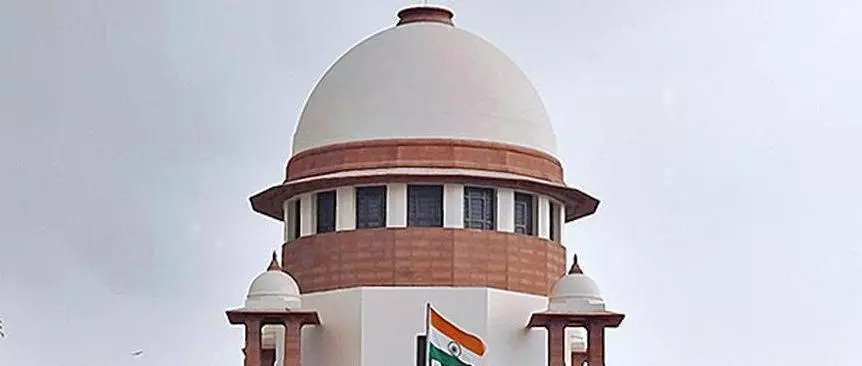
Union govt asked by SC to pause release of women army officers
text_fieldsNew Delhi: The Supreme Court on May 9 urged the Union government not to release Short Service Commission (SSC) women Army officers who are contesting the denial of Permanent Commission (PC).
The court is said to have stressed the importance of maintaining the morale of these officers, especially as the government has recently been highlighting the role of women in key military positions, according to the Indian Express.
Justice Surya Kant, presiding over a two-judge bench observed, “There is some better place now for them to perform. As of date, we would like their morale to be kept high. Meantime, just utilise their services.”
He added, “It’s not your case they are an unsuitable kind of officers,” and suggested making a “transitional arrangement” until the matter is heard next in August, hinting at the current security climate by saying, “At this juncture, let us not do something which…,” as reported by The Wire.
The Supreme Court's intervention follows recent government efforts to spotlight women officers, such as Colonel Sofiya Qureshi of the Indian Army and Wing Commander Vyomika Singh of the Air Force, who have been at the forefront of public briefings on “Operation Sindoor” after recent military actions.
The court had previously recognised Col. Qureshi’s contributions in its significant February 17, 2020, ruling that granted PC to women officers. That decision had sharply criticised the government’s earlier position, which labelled women as “physiologically unfit”—a view the court condemned as reinforcing gender stereotypes and disrespectful to both women and the Indian Army.
At the hearing, Additional Solicitor General Aishwarya Bhati, representing the Union government, defended the decision to release SSC officers as a policy matter aimed at maintaining a youthful force structure, referencing the Army’s pyramidal structure.
She also pointed out that women officers have had significantly better outcomes in obtaining Permanent Commission since its full introduction.
During the hearing, senior advocate Menaka Guruswamy, representing Lt Col Geeta Sharma, argued that Col. Qureshi herself would not have been able to lead the ‘Operation Sindoor’ if the Supreme Court had not granted Permanent Commission (PC) to women officers in its 2020 Babita Puniya judgment.
Guruswamy asserted that citing administrative powers could not justify discriminatory practices and drew attention to what she claimed were existing vacancies.
The Supreme Court clarified that it was not issuing a stay on the matter's merits at that point but emphasized the importance of maintaining a balance between youth and experienced leadership in the armed forces.
Justice Kant observed that the country could take pride in the capabilities and commitment of officers serving under demanding circumstances, acknowledging the high calibre of today’s personnel.
The fight for PC for women officers has been lengthy and difficult. Despite the 2020 Supreme Court ruling that emphasized the necessity of administrative resolve and a shift in mindset to eliminate gender bias, women continued to encounter obstacles—among them, disputes over medical fitness standards that the Court had earlier questioned as possibly unjust.
In October 2020, the Supreme Court, which at the time included now-retired Justice D.Y. Chandrachud, had to step in once more, pointing out a difference of thinking between senior leadership and the Army bureaucracy on granting PC to women.
The Court is set to take up the current set of petitions again in August, beginning with the case concerning the Army.


















